commentary Commentary
Commentary: How COVID-19 vaccines are being weaponised as countries jostle for influence
A new hybrid Cold War is underway, with US, China and pivotal states engaging in a power play, says NUS Business School’s Alex Capri.
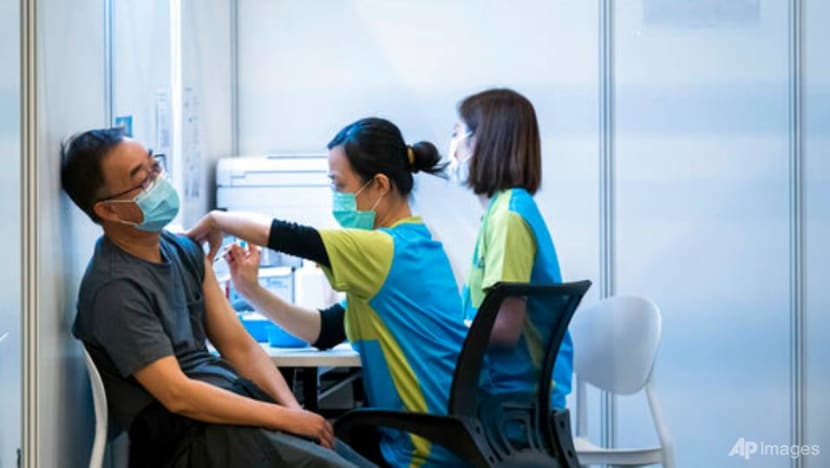
A man receives a dose of the Sinovac Biotech COVID-19 vaccine at a community vaccination centre in Hong Kong, Feb 23, 2021. (File photo: Paul Yeung/Pool via AP)
SINGAPORE: Mario Draghi, the Prime Minister of Italy, recently blocked the export of 250,000 AstraZeneca vaccine doses from his country to Australia.
To many in the international community, this was an act of “vaccine nationalism”. In fact, Mr Draghi’s decision reflected different variants of nationalistic behaviour, spurred on by geopolitical forces and compounded by COVID-19.
At the outbreak of the pandemic in early 2020, for example, China, the US, the EU, India and the UK all imposed export restrictions on personal protective equipment (PPE). Shipments of ventilators and antiseptic chemicals were also blocked as national health services competed for scarce supplies.
This behaviour contradicted the norms of international commerce, science and social exchange, which, for decades, have benefitted from a highly interconnected and interdependent global system.
Worse, vaccine nationalism may be the precursor to “vaccine diplomacy,” a form of realpolitik that compels nations to leverage their nation’s vaccine capabilities for geopolitical gain.
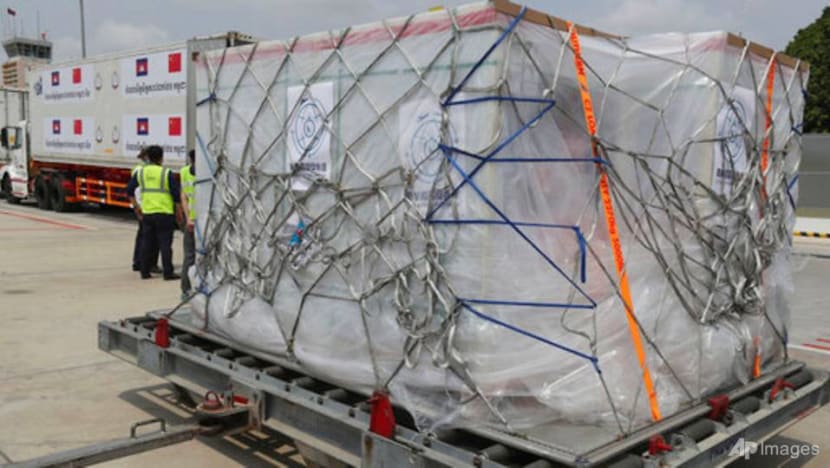
But vaccine diplomacy has shed light on an even more fundamental truth: A hybrid cold war is underway, involving the US, China and other pivotal states.
Its by-product is hybrid warfare, a mix of diplomatic, economic, cyber and information-related actions, all of which fall below the threshold of armed conflict but are, nonetheless, disruptive to the workings of the international system.
There will be no returning to the kind of globalisation the world experienced over the past four decades. Consequently, state and non-state actors must adapt.
READ: Commentary: Concerns over long-term side effects could hold back Singapore’s COVID-19 vaccination programme
VACCINE DIPLOMACY
Consider what has been playing out on the world stage.
Beijing recently eased restrictions on travel into China for international travellers, on the condition they show proof of vaccination with China-made brands such as Sinovac and Sinopharm - despite lack of complete final stage clinical trial data over the actual efficacy of Chinese vaccines.
When Russia became the first nation to authorize a vaccine (the Sputnik V, which now has a reported efficacy rate of 92 per cent) American, British and other Western diplomats stationed in Moscow rejected offers from the Putin government for free vaccinations, despite not having access to alternative vaccines at the time.
Although Phase 3 data wasn’t yet available at the time, the optics of British or American diplomats receiving a Russian vaccine would have been a propaganda coup for Moscow.
Beyond vaccine nationalism, the Philippines recently became a victim of vaccine diplomacy in a very tangible way.
In March, a surge in COVID-19 cases threatened to wreak havoc across the nation, which prompted the Rodrigo Duterte government to turn to China for more vaccines - even though both countries were locked in an escalating confrontation over disputed territory in the South China Sea.
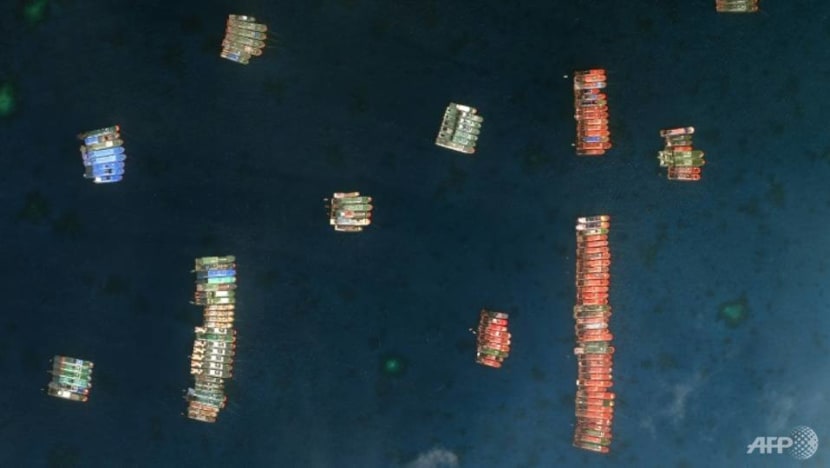
As Beijing was supplying its vaccines to Manila, some 200 Chinese vessels were moving to occupy Whitsun reef, an atoll claimed by both China and the Philippines.
The timing of Beijing’s South China Sea gambit was no coincidence: Manila’s dependence on Chinese vaccines meant the Duterte regime had essentially agreed to forfeit its challenge to Beijing’s power play.
Beijing’s move in the Philippines sparked a reaction from the US and its allies. Even as Chinese vessels were dropping anchor at Whitsun reef, US Secretary of State Antony Blinken was conducting meetings with his counterparts from Japan, Australia and India - all members of the Indo-Pacific Quad security forum - to begin preparations for a multilateral vaccine diplomacy campaign.
One country with a lot to gain from vaccine diplomacy is India. The Serum Institute of India (SII) is the world’s largest manufacturer of vaccines, making approximately 1.5 billion doses per year under license from, among others, companies such as AstraZeneca.
READ: Commentary: This 71-year-old wants you to get a COVID-19 vaccine once you can. Here’s why
READ: Commentary: Misinformation threatens Singapore’s COVID-19 vaccination programme
In January, India launched the Vaccine Friendship initiative, which aims to supply made-in-India vaccines, gratis, to developing countries around the world - a direct challenge to China’s vaccine diplomacy. New Delhi has already reached out to Manila and will provide the Philippines with a steady supply.
India, which views China’s rise as a strategic threat, has been looking to capitalise on its growing importance to Washington in the broader context of a US-China hybrid cold war.
Its vaccine manufacturing capabilities are a major asset, particularly as New Delhi hopes to promote Make-in-India initiatives to attract strategic supply chains as they decouple from China. Having Washington’s endorsement provides New Delhi with a historic opportunity.
THE BATTLE IN CYBERSPACE
Vaccine nationalism has been linked to state-backed disinformation, propaganda and cyber intrusions - all key elements of hybrid warfare.
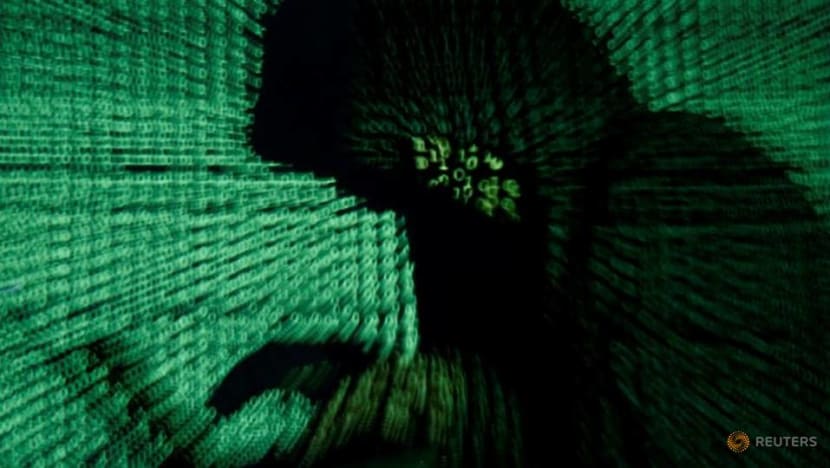
On the information front, for example, Russia, allegedly engaged in digital disinformation operations to undermine confidence in Pfizer’s and other vaccines produced in the US and Europe. This was done not only to promote its own vaccine, the Sputnik V, but to sow confusion and mistrust among citizenry of other countries.
In cyber-space, vaccine nationalism has been linked to a surge in cyber-intrusions and the theft of data at pharmaceutical companies, NGOs and government agencies.
In the early days of the pandemic, for example, in 2020, Pfizer, an American company, and its German partner, BioNTech, reported that sensitive documents had been hacked in a cyberattack on the European Medicine Agency (EMA). Like other regulatory agencies, the EMA regulates and approves medicines and has extensive information on trial drugs.
(Listen to the behind-the-scenes considerations and discussions going into what might be Singapore’s biggest vaccination programme ever on CNA's Heart of the Matter podcast:)
ECONOMIC AND TECH NATIONALISM
Early on, COVID-19 wreaked havoc with decentralised, pluralistic governments in the US and Europe, leaving them conspicuously absent from the world stage.
As Western governments turned inward to cope with COVID-19, China’s “wolf-warrior” diplomats used social media to paint American and European pharmaceutical companies as greedy opportunists peddling unsafe vaccines while depicting their governments as self-serving and callous. This narrative has resonated on both social media and traditional media in many of the world’s poorer countries.
China moved quickly to launch a global vaccine diplomacy campaign, promoting itself as the provider of a sorely needed public good.
READ: Commentary: The Quad has a plan and it’s not all about China
Beijing has announced it will supply its Sinopharm and Sinovac vaccines in more than 60 nations, targeting its neighbours as well as strategically important states in Africa, Southeast Asia and the Middle East. It has made early inroads with its vaccine offers in Latin America and the Caribbean, as well as in Eastern and Central Europe.
China’s vaccines are to be distributed as limited “donations” or as “samples” for larger purchases in the future. In other instances, the vaccines will be offered with credit guarantees from Chinese State-owned banks, a familiar practice used to push Chinese telecommunications technology and other infrastructure into countries along its Belt and Road initiative (BRI).
Here, an economic-diplomatic-technology feedback loop becomes apparent as Beijing-administered vaccines are linked to other essential services and products provided by Chinese companies.
For example, as telemedicine and medical technologies become ubiquitous, an ocean of private data will become accessible through a worldwide vaccination campaign administered by state-backed entities.
READ: Commentary: Requiring proof of vaccination for travel raises bigger questions
Chinese state-funded company BGI, for example, which already provides COVID-19 testing and DNA sequencing services for 80 countries, offers a compelling example of the kind of scale, depth and power of vaccine diplomacy.
It obtains DNA samples from billions of people around the world, which has triggered fears of digital dystopia on a massive scale.
The US and its allies are mobilising. A report from the non-profit ONE Campaign found that five nations, along with the European Union, are on track to have over 1 billion surplus doses after vaccinating their populations. Many of these will be donated to countries around the world, under the banner of vaccine diplomacy.
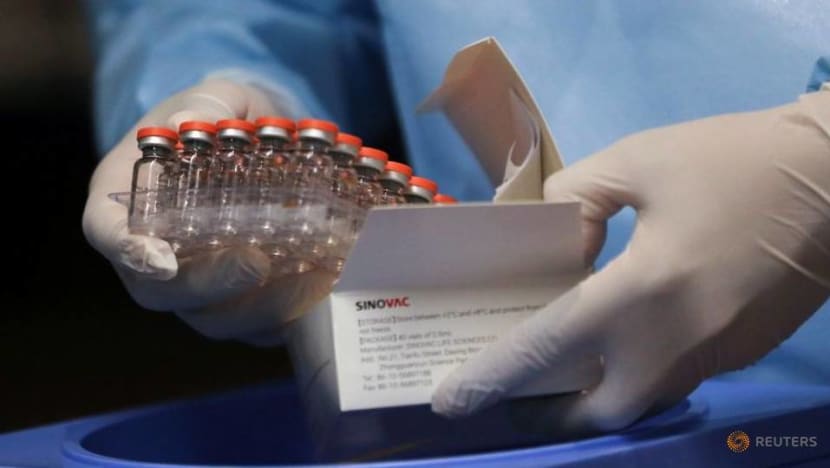
CONTRADICTIONS: STATES, FIRMS AND MARKETS
While governments pursue self-serving realpolitik, the scientific, medical and corporate communities, to a large extent, remain country-agnostic.
This was on display during the initial race for a vaccine, as researchers, health professionals and other stakeholders shared data and collaborated using open-sourced genome sequencing software on the internet.
Scientific data was available throughout the digital global commons. Open-sourced artificial intelligence and powerful machine learning helped produce effective vaccines in less than a year - an absolute wonder of science and technology.
Hybrid cold war has produced contradictions between governments, markets and non-state actors, therefore, which will extend beyond vaccines. Affected parties must learn how to navigate through these contradictions.
READ: Commentary: Taiwan is becoming the biggest test in US-China relations
Just weeks after the Draghi proclamation, police in Italy discovered another 29 million doses of AstraZeneca vaccines, stashed away in a warehouse in Anagni, Italy.
It was not surprising, then, that AstraZeneca’s official response was that the company was trying to keep out of the political fray while it awaited the outcome of highly charged negotiations between the UK and the EU, and which countries would win the right to receive its COVID-19 vaccines.
Alex Capri is Research Fellow, Hinrich Foundation and Visiting Senior Fellow, NUS Business School. His new book Techno-Nationalism: How its Reshaping Trade, Geopolitics and Society” (Wiley) is due in stores in September.












